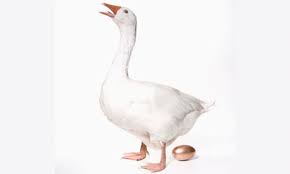Do transitions maker you anxious? Do you have trouble moving from one activity or environment to another? Do you prefer to stay home after a busy day and long commute rather than going out on the town? Even when I am in control of the circumstances, I still need to self-motivate and self-regulate in times when I need to transition from a comfortable situation to an unknown opportunity.
Imagine how anxious you might be if you weren’t in control and didn’t have a voice in where you were expected to go next. Predictability is a strategy that many employers use but that level of familiarity breeds contempt and boredom. A better approach would be to design respectful, productive, shifts from one approach, assignment, or expectation to something different.
Today I witnessed anxiety, pain and discomfort from an employee who is living with uncertainty and anxiety about where and what they need to be undertaking in the next phase of their employment. I also saw a small child fall to the ground and flail and scream when it was time to go home.
Whether working with a team or shepherding a family these 6 tactics should be part of the plan.
1. Don’t undermine, deride or deny the feelings that are being experienced, even if you don’t feel the same way or understand how someone else might be feeling. observe the body signals and listen to their words with openness and curiosity. Acknowledge the feelings and encourage everyone to safely express their concerns. It may feel that being a command and control leader or parent would be more effective and productive and it may be in the shorter term but the anxiety, emotional upheaval and health challenges this can cause will be more costly in the long run. Be the type of leader who leads with consistency, compassion and care will give you real authority and license to hold high expectations and be respected for helping them through the awkwardness rather than pushing them into a chasm.
2. Offer a clear, brief explanation as to why the change is needed. ” I understand that you are busy calling all our accounts receivable but I need a weekly sales report to give to the president” ” I can see that you would like to stay at the park but we need to leave in five minutes so that we can get home to start supper before mommy gets off work. She is working very hard and will be very hungry. Can you help me make supper?
3. Even in moments of anxiousness and distress don’t behaviour that is unacceptable or for expectations to be lessened. It may seem counterintuitive and callous but in stressful situations and transitions, consistency is more than ever.
4. Be generous with gratitude and judicious with praise. They need to know that their efforts are appreciated but lavishing too many accolades creates neediness.
5. Be patient. Be patient with the people and the process. Let reality sink in and leave time for reflection and understanding. Through our patience and trust, we give employees and others that we support a safe place to air their concerns, acknowledge that they are heard and still lead them through the rocky change.
6. The hardest thing to practice when faced with resistance, is determination. Don’t backtrack, don’t concede, don’t surrender or your leadership/parenting will become suspect.
This isn’t a silver bullet that will work in every situation (nothing is) but if you follow these steps and master the listening and negotiation skills that go along with them, you will have fewer tantrums, rebellions or productivity drops.
There’s a little bit of pain in every transition, but we can’t let that stop us from making it. If we did, we’d never make any progress at all. ~ Phil Schiller
Make Today Remarkable by leading rather than pushing,
Bob
